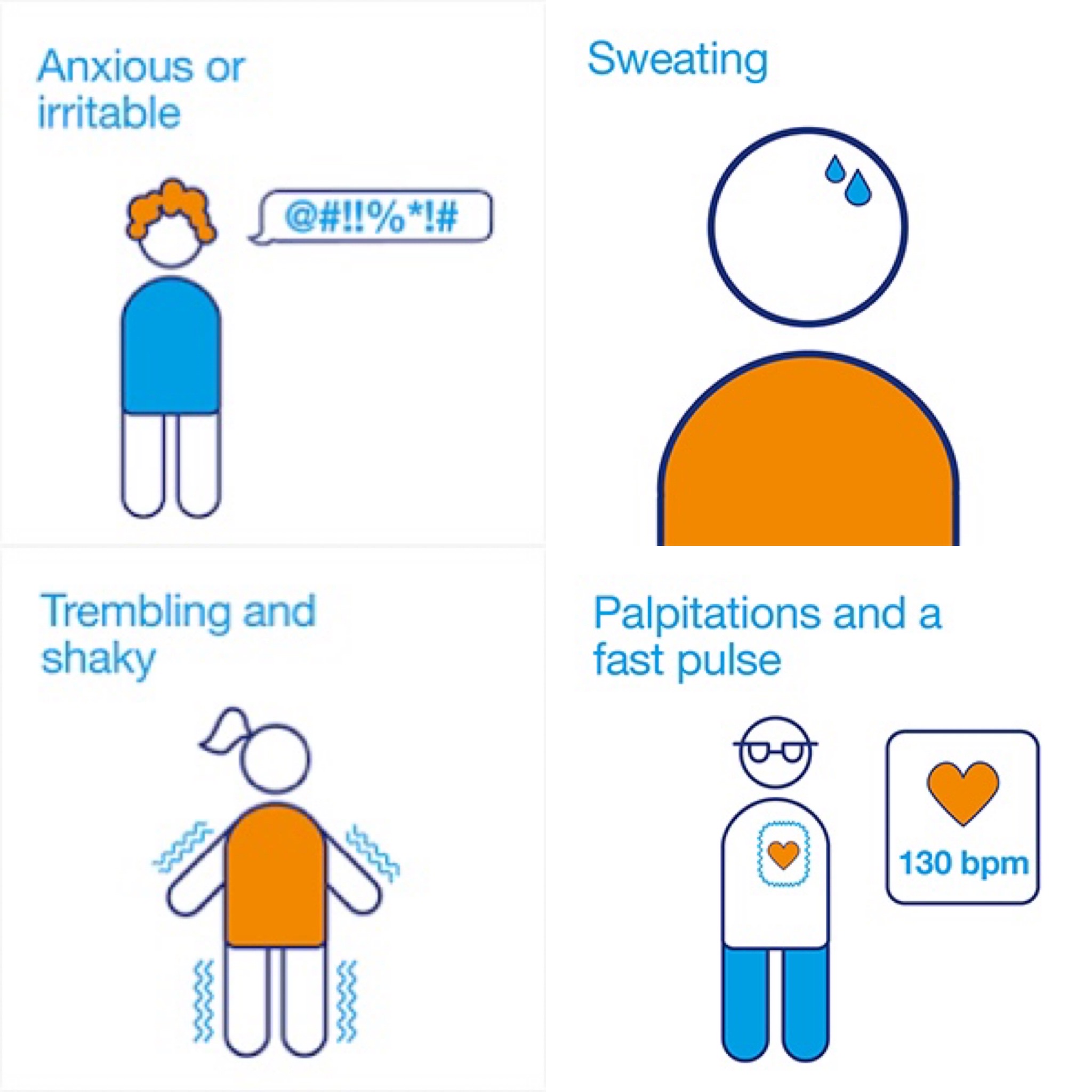Hi MOMS,

This blog post is very personal to me and that’s because I’m sharing that while pregnant with Benny, I developed Gestational Diabetes. While having this “condition” during pregnancy wasn’t life ending it was life altering and I had to be closely monitored by various doctors. Gestational diabetes is no joke. I was on a strict diet for the duration of my pregnancy and I was fearful that Benny would develop the disease. It impacted my entire family. According to an international study (TALK-HYPO) of 4,300 family members of people with Diabetes, worrying about low blood sugar, also known as Hypoglycemia or Hypos can place a significant burden on them too. This all makes sense now as my family was super worried about me and about yet-to-be born Benny.
You see a person living with Diabetes faces numerous challenges. One of which is frequent incidences of low blood sugar, otherwise known as Hypos (Hypoglycemia), further details can be found HERE!

Hypos affects people in various ways. There are some identifiable symptoms which include:
- trembling
- sweating
- anxiety
- confusion
- difficulty concentrating
- nausea
- palpitations
If you’re living with Diabetes, having low blood sugar may make you feel:
- very hungry
- shaky
- fast heartbeat
- headache
- lightheaded or dizzy
- blurry or impaired eyesight
- difficulty concentrating
- tingling or numbness in lips/tongue or cheeks
- sleepy
- weak or no energy
Prior to being diagnosed with Gestational Diabetes, I felt off. Some of my symptoms mirrored those above specifically feeling super shaky, dizzy and sleepy. To be honest, I shrugged it off. I was pregnant, it was my second child. I was tired from having to take care of Zach at home. At the constant urging of my husband and family, I went to my doctor and had complete blood work done. I knew my thyroid was being monitored (I have hypothyroidism) and that was stable. Once they confirmed my diagnosis, I was shocked. I was like: “it can’t be me!” Well, it was and I knew I needed to jump into action.
The facts are clear about living with Hypos, check this out: Talk About Hypos Infographic.
The results of the TALK-HYPO study show how great of an impact having Hypos has on the family unit. Check this out:
- Fear/Anxiety: 64% of those living with Diabetes are worried/anxious about the rise of Hypos in their relatives;
- Social Life: 74% spend less time on, or completely forgo, activities such as hobbies, holidays or being with other friends and family;
- Impact: 76% believe that having further conversations about Hypos can lead to a positive impact on the life of their relative living with Diabetes. Furthermore, 43 of the participants report that the primary barrier to these conversations is their relative with Diabetes not wanting to talk about Hypos.
I can most certainly relate to Impact. When I was newly diagnosed, my family had a ton of questions for me. I wasn’t interested in talking further about what I was going through. I wanted for it to go away and for me to go on with having Benny without any issues. As time went on, I felt more comfortable to talk about it especially since my readings (after daily pokes) showed improvements but truthfully, had the gestational diabetes gotten worse and had I required Insulin, I may have not felt so free to discuss what I was going through. That’s the key part here: having the courage to talk with others about your health may help others.
What’s often left out of the conversation when anyone gets diagnosed with an illness is how will this impact the family as a whole. It’s interesting to note that Novo Nordisk conducted a series of filmed experiments where those with Diabetes and their family members were asked similar questions about their experiences with and feelings about low blood sugar in two separate rooms. After the interviews, they were shown each other’s answers. Check out what transpired at: http://www.talkabouthypos.ca.
The key here is to increase low blood sugar straight away when it happens and speaking honestly with your doctor about a proper treatment/management plan.
My message: you know your body best. If something feels off, get it checked!
Talking about Diabetes and Hypos is important. That’s why I believe so strongly in women’s health and awareness initiatives like this Talk about Hypos campaign. First step is gaining all the information/knowledge needed and second step is implementing procedures to make your life manageable.
To find out more information including that film conducted by Novo Nordisk and materials that could help you or someone you love, visit http://www.talkabouthypos.ca.
xo
SZ
